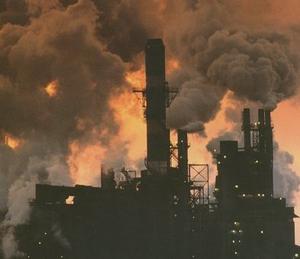How to Reduce Pollution from Fossil Fuels?
Sunday,
Jan 22
Jan 22
Another measure that could be taken and is being taken, at least to some extent, is increased environmental regulations. Of course different countries have their norms and regulations that are aimed at minimizing pollution, but as we understand, it is not easy to reduce pollution significantly even when these regulations are adopted and in effect. We can take as an example old coal plants in the United States. These old plants are allowed to operate under the least protective standards. New technologies and common efforts could change the situation; however, very often people only start really pursuing something when it reaches the verge of real danger. We can only hope that it won't be too late when serious changes are implemented that will decrease pollution so that our descendants won't blame us for any downtime.

Fossil fuels represent a major source that provides the world with energy. These fuels are non-renewable; in other words, the rate at which these fuels are being used is faster than the rate at which they are being formed. The most popular theory about the origin of fossil fuels is that they were formed many millions of years ago, basically the fossilized remains of ancient plants and animals. These remains were mixed with mud and lie under the surface of the Earth. After that, the influence of pressure and heat as well as some other factors transformed these substances into fossil fuels. This is a very simple explanation, though, of course, the process was more complicated practically. There is also another conception regarding the fossil fuels formation, but it is not as broadly supported as the first mentioned.
Fossil fuels are combustible, which means they can produce energy. What do we include as fossil fuels? These are coal, natural gas and crude oil. They are getting more expensive every year, but not just that. They also produce harmful by-products and pollution, each to its own extent.
It is considered that about 90 percent of the current greenhouse gases on Earth are contributed by the burning of fossil fuels. If the global average temperature increased by only 1 degree Celsius, it would lead to very serious and negative effects, which might include tornadoes, a sea level increase, melting of the polar ice caps, floods and the spread of infectious disease(s). Volatile organic compounds, sulfur dioxide, heavy metals and other pollutants are all released as by-products from the burning of fossil fuels. Automobiles release more pollutants than any other pollution source. They cause respiratory disease and even death in some cases. This is a serious threat to our planet.
Another problem caused by air pollution is smog and acid rain. Acid rain, produced by pollutants like sulfur and nitrogen, mixed with water, are caused by human activity, mainly. Acid rain affects forests, soil and aquatic life as well as buildings and monuments.
First of all, dependence on fossil fuels should be reduced by increasing the use of alternative energy sources such as solar energy, wind energy and others. These alternative sources have been used already in many countries for several years. New technologies are also being developed currently. Of course this would require time and investments.
Related Posts
- What are the disadvantages of Biomass Energy
- Any Eco-friendly Gift Ideas?
- Who Are Major Industry Players in Making Biofuel?
- Taking on energy conservation as part of your life
- Are There Untapped Oil Reserves?
You Can Use This Form to Leave Your Feedback or Ask Additional Question
You must be logged in to post a comment.




